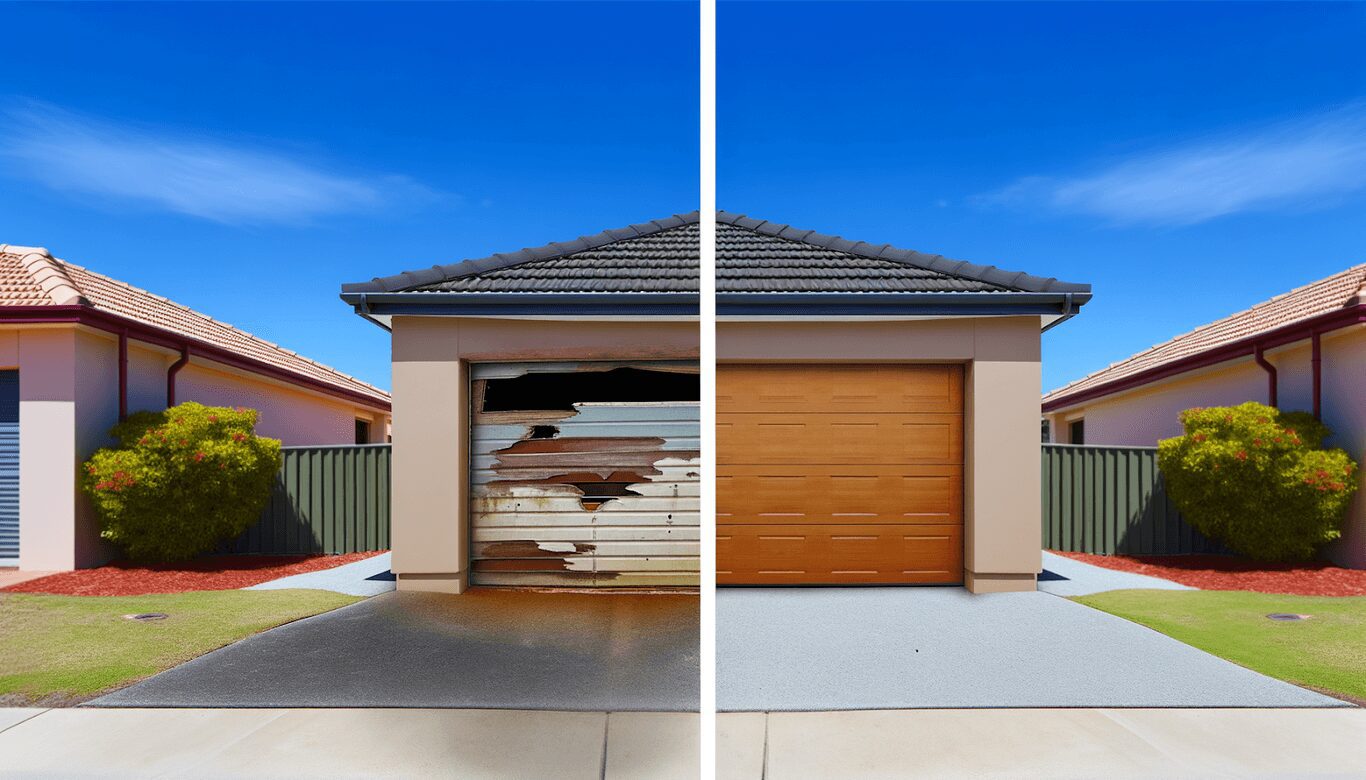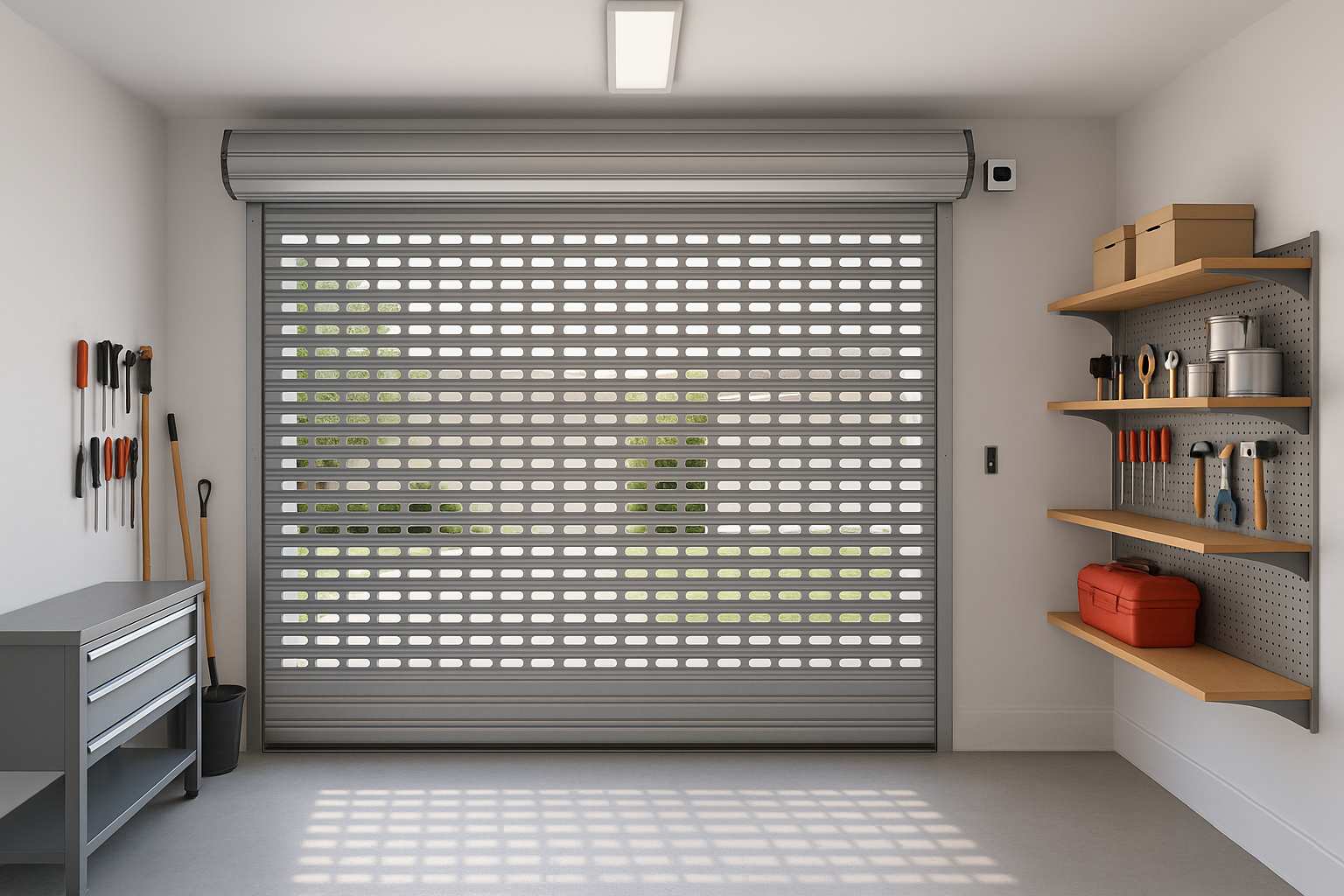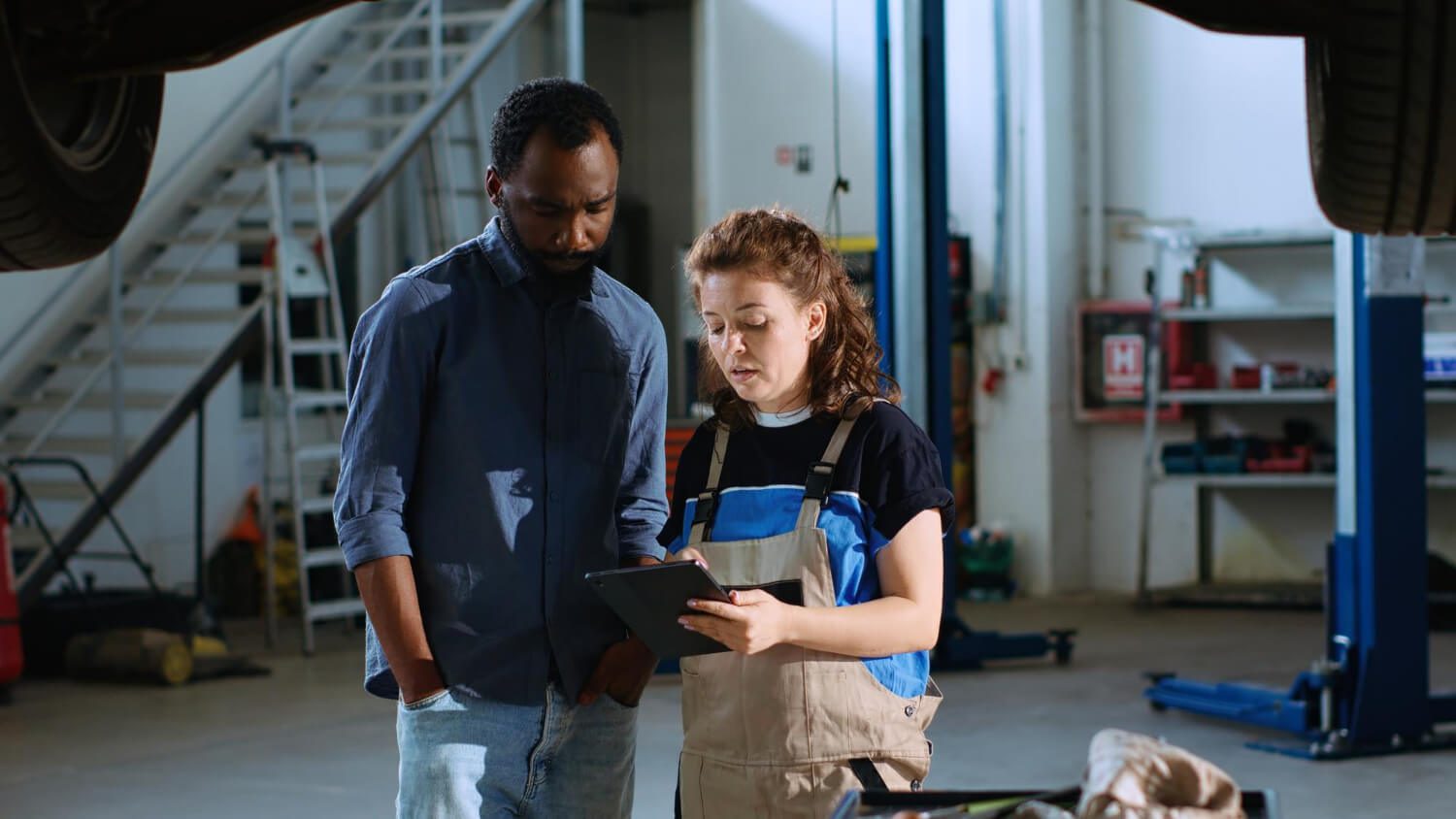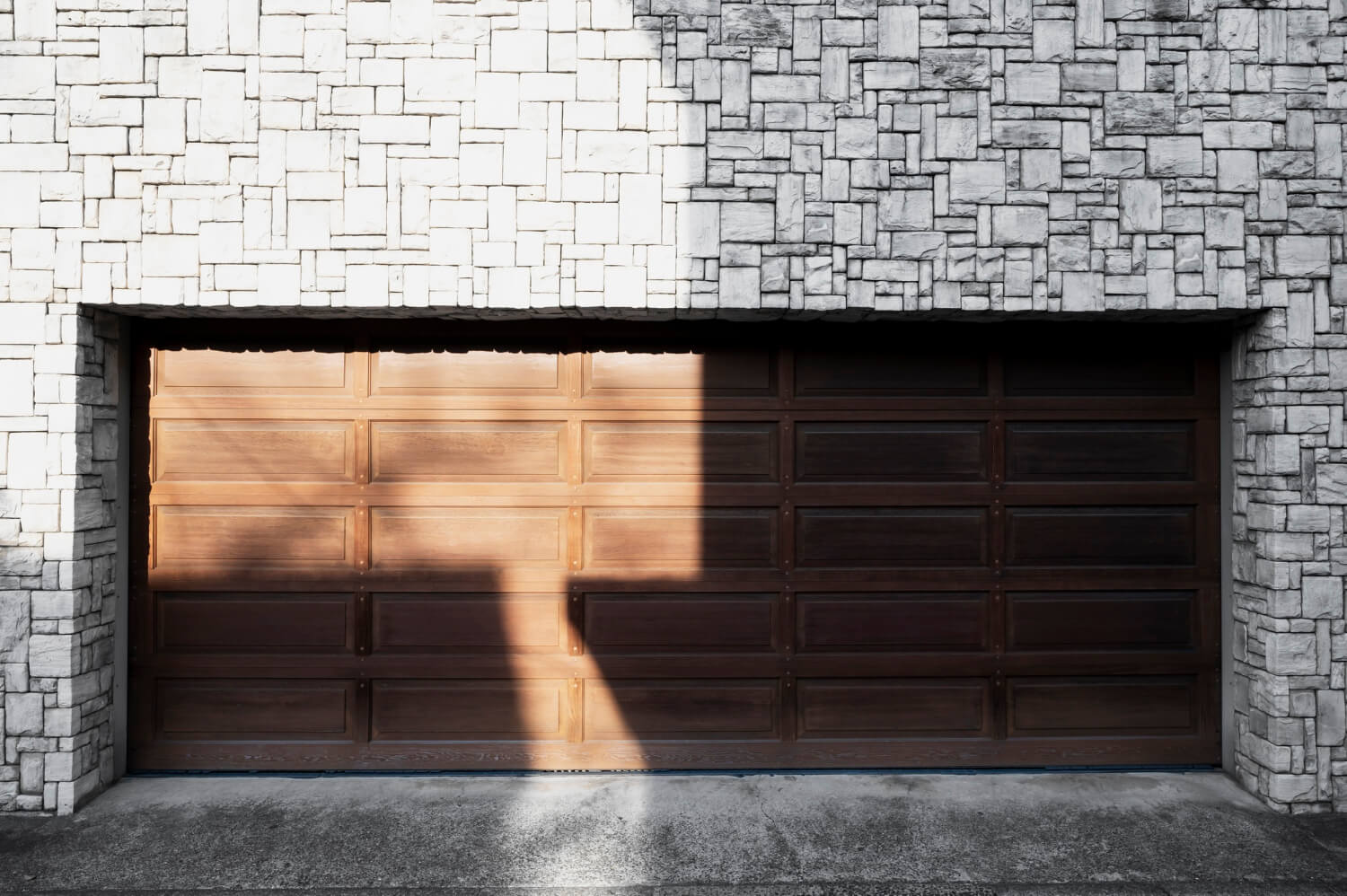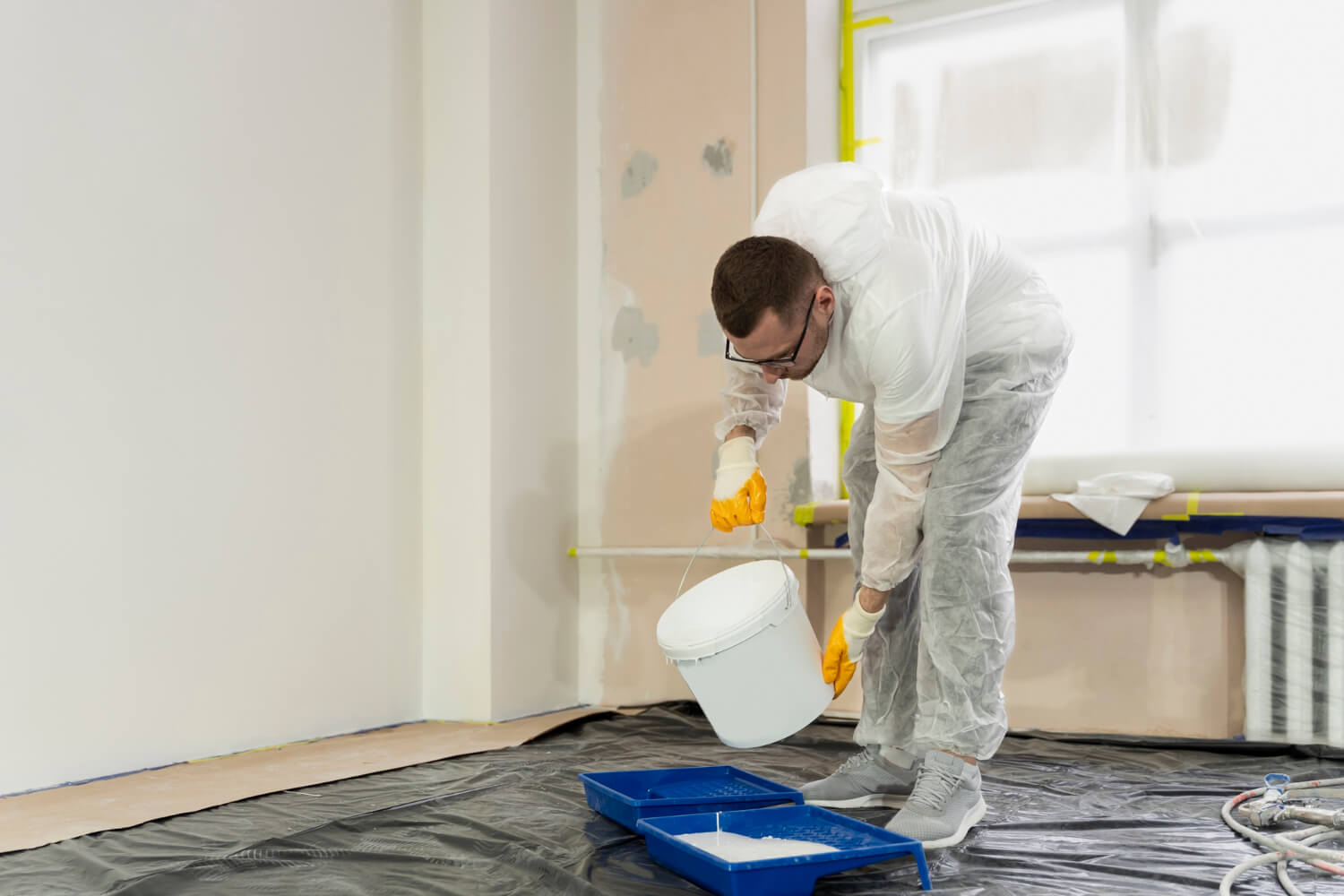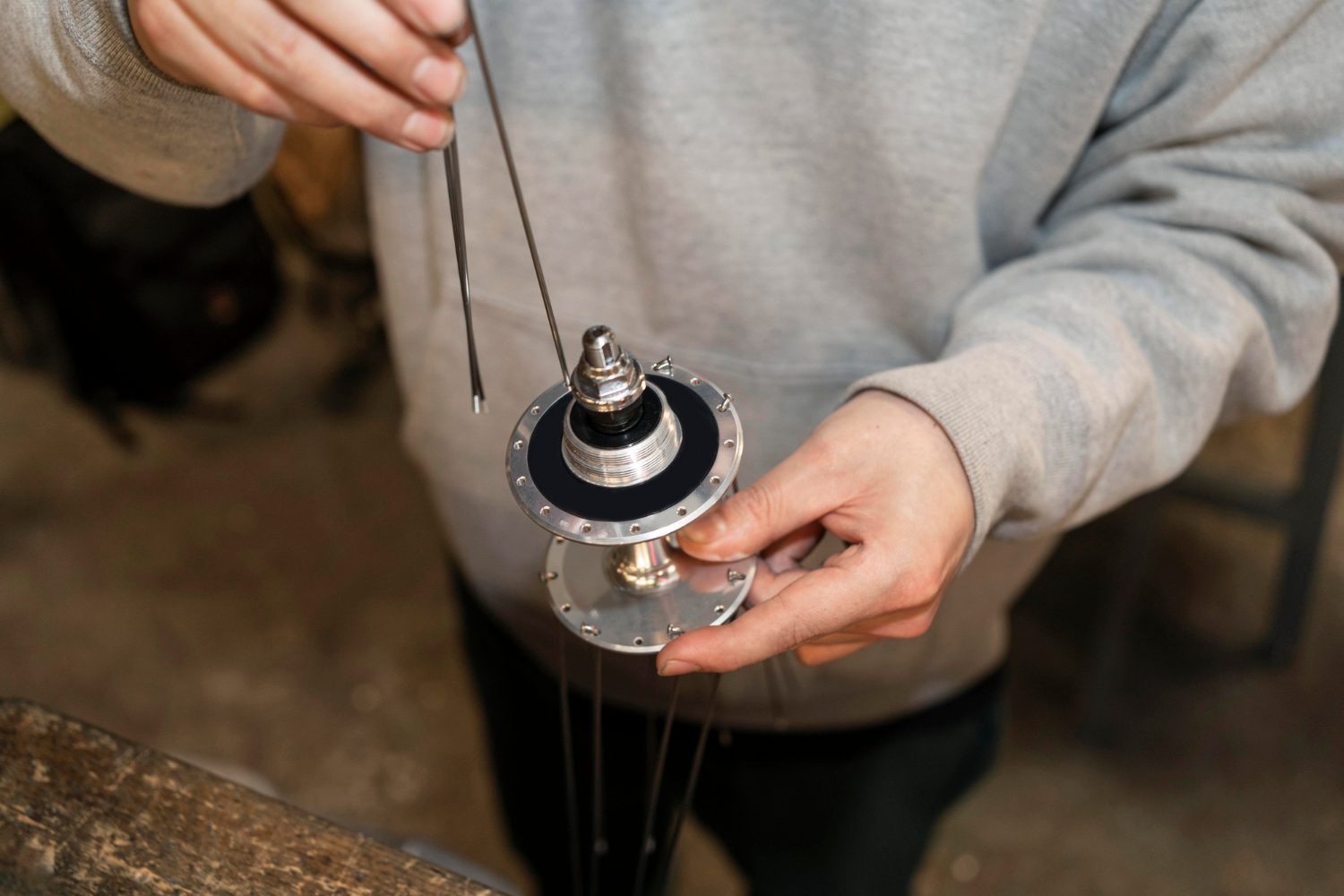When your garage door malfunctions, it can feel like hitting a stop sign on your morning routine, putting a sudden halt to your plans. The burning question now is – should you repair or outright replace your garage door? Let’s dive into the nitty-gritty with a detailed cost-benefit analysis to arm you with the knowledge you need to make a proper decision.
Understanding the Signs: Repair vs. Replacement
The first step in the decision-making process is to identify what’s wrong with your garage door. Sometimes the fix can be straightforward, but at other times, replacement may be the better long-term solution. Here’s how you can start:
- Squeaks and Creaks: Minor noises might just need lubrication, but if they persist, it might indicate significant wear, especially if these sounds have been growing louder over time.
- Age of the Door: If your garage door has been around for more than 15 years, it may be nearing the end of its reliable life, making replacement a practical consideration.
- Frequent Repairs: A string of repairs is a red flag. If you’ve had multiple issues and repairs in quick succession, replacement might be the more cost-effective choice.
- Visible Damage: Large dents, a sagging door, or heavy structural damage should push replacement to the forefront of your decision-making.
Cost-Benefit Analysis: Repairing Your Garage Door
Repairing a garage door tends to be less expensive in the short term, but it’s important to weigh this against ongoing maintenance costs and potential inconvenience. Below are the main benefits of repairing a garage door:
- Lower Initial Cost: Repairs typically cost less than replacing an entire door, especially for minor issues like a faulty hinge or track misalignment.
- Less Disruptive: Repairs can often be done quickly and with minimal disruption to your schedule.
- Extend the Life of Your Door: With proper maintenance and timely repairs, you can extend the service life of your current garage door.
When Repairs Might Not Cut It:
If your garage door is causing security issues, offers poor insulation leading to high energy bills, or simply won’t operate reliably after numerous repairs, then it’s time to consider replacement.
Cost-Benefit Analysis: Replacing Your Garage Door
Replacing your garage door represents a more significant upfront investment, but can be the smarter long-term decision in many cases. Here are some compelling reasons why a new garage door is the way to go:
- Enhanced Safety: Newer models come with improved safety features, ensuring the protection of your home and loved ones.
- Increased Energy Efficiency: Modern garage doors offer better insulation, contributing to a more energy-efficient home and reduced utility costs.
- Improved Aesthetic Appeal: A new door can increase the curb appeal of your home, contributing to a higher resale value.
- Worry-Free Operation: Say goodbye to the frequent worry and inconvenience of breakdowns with a dependable new garage door.
Steps in Replacing a Garage Door
Thinking about going down the replacement path? Here’s a brief look at what’s involved:
1. Removing the Old Door
- **Disconnect the Garage Door Opener:** Ensures no accidental mishaps during the process.
- **Remove Cables and Springs:** This is a task best left to professionals, given the high tension involved.
- **Dismantle Panels:** Carefully remove each panel, starting from the top.
2. Preparing the Opening
- **Inspect & Reinforce the Frame:** Make sure it’s solid enough to support a new door.
3. Installing the New Door and Hardware
- **Follow Manufacturer Instructions:** From fixing the panels to securing the tracks, precision is key to ensure smooth functionality.
Safety and Maintenance Considerations
Garage doors are hefty and can be dangerous to handle without the right knowledge. Anyone undertaking this task should consider:
- **High Tension Springs:** Mishandling can lead to serious injuries. Always wear protective gear and ensure you’re not alone during the process.
- **Heavy Door Panels:** Securely hold them in place during installation to avoid potential injuries.
Regular maintenance like lubricating moving parts and checking the integrity of cables and tracks can ensure a long life for your new garage door. Always store manuals and warranty information where they’re easily accessible.
Considerations for the Right Garage Door
Once you’ve decided to replace, pick a garage door that suits your lifestyle and climatic conditions. Some considerations might include:
- **Materials:** Think about durability and maintenance, from low-maintenance steel to elegant wood designs.
- **Insulation:** A must-have if your garage is used as a workspace or if it’s attached to your home.
- **Designs and Colours:** Ensure it complements the architectural style of your home for that seamless curb appeal.
Conclusion
Weighing the costs and benefits of repairing versus replacing a garage door is crucial for the lifespan and functionality of this vital home component. With the right choices, you ensure safety, efficiency, and beauty for years to come, making your everyday life just that bit easier. If you’re still on the fence, consulting a local expert can provide tailored advice specific to your unique situation.

